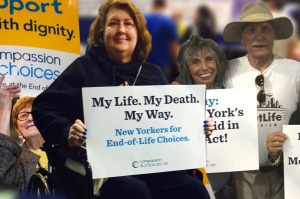How to love suffering people who are faking it
“People don’t fake depression. They fake being okay.”
I perked up as this wise meme materialized on my Instagram stream.

These are challenging times. I suspect there are many who fake a “fine, thanks” when their finances may be shriveling. After all, millions have lost their jobs. Small businesses are folding. Mandatory lockdowns are intensifying loneliness.
People are hurting.
The antidote is Jesus’ commandment for us to love one other (John 13:34-35). What a timely message, given how COVID season is spiking mental health symptoms.
At the same time, as the meme reminds us, hurting people may exude an A-OK air. Others carry themselves in such a sullen manner it may unnerve our best intentions.
So, how are we to minister God’s love to these individuals?
In honor of May as the Mental Health Awareness Month, I’d like to share insights from my tenure as Director of Counseling Center at the Los Angeles Dream Center, which might help you represent Jesus to suffering souls who hide their pain. (Note, however, that because psychologists are forbidden from disclosing clients’ identities, the following are fictitious characters).
1. A hard exterior reveals a hurting interior.
To outsiders, the clients we served at the counseling center seemed calloused. But because therapists are trained to listen with copious compassion, we offered them a safe space—and as we validated our clients’ pain, they granted us the privilege of peeking into the heart-wrenching backstories they had buried from the world.
Just like Phen. He cultivated a reputation as a hardened parole who joined a gang at 13 and spent his 20’s in prison. That’s where he found Jesus. In therapy, Phen unburdened his guilt and acute grief because his younger sister died of an overdose—after he introduced her to drugs.
How does this translate into your life?
Treat people with hardened exteriors as candidates for sharing God’s love. I recommend a blend of compassion, curiosity, and playfulness as you interact with them—perhaps something open-ended, such as, “How’s 2021 for you so far? Any fun plans in the works, just to spite COVID?” Drawing from the Internal Family Systems model, a theory I utilize in my practice, I can attest how curiosity and compassion can unlock doors to someone’s inner world.
2. The power of a little a week
Sessions at the Dream Center Counseling Center ran from 45 to 90 minutes, depending on the format. Most clients saw their therapists once a week. This means they received roughly an hour’s worth of understanding every week—piddly, really, since each week consists of 112 waking hours (assuming 8 hours of sleep per night). But our Center also functioned as a training center for graduate students who would only stay for a year before moving on to another assignment. Still, year after year, our clients faithfully endured these changes, terminating with their old therapists and resuming therapy once the new set of therapists checked in.
Because of love. First Corinthians 13:8 explains, “love never fails.” Love is so powerful, even a little dose of it brings much gladness.
What does this mean for you? It means consistency counts, no matter how insignificant it may seem. Say there’s a particular cashier at your grocery store who tends to bark at her customers. Maybe you can offer her a sincere smile this week. How about following it up with a friendly five-minute check-in next week? Maybe, despite her gruff demeanor, you come prepared the next week to greet her with a polite inquiry if there’s anything you could do to make her day brighter. And if, a week later, you ask if you can pray for her, your persistent attentiveness might disarm her enough to answer in the affirmative.
Remember, Zechariah 4:10 warns us not to despite small beginnings.
3. Seeing a therapist is not a sin.
Noah is one of the counseling center’s many memorable clients. His recovery program at the Dream Center mandated him to receive 12 therapy sessions.
Which he never missed.
But Noah hardly left any space to explore his emotional world.
From the moment he sat down until his session expired, Noah preached to his therapist. He emphasized how Jesus had completely healed his addiction. He insisted how faith for a brighter future was all he needed. Whenever his therapist inquired about his well-being, he’d grin and bellow Scripture (“the joy of the Lord is my strength”) or Christianese (“too blessed to be stressed”).
I’ve since met other believers like Noah. They may not say it explicitly, but their attitude loudly announces their apprehension about counseling. Perhaps they deem it sinful—as though having a therapist betrays their faith in God. Yet, notice how 1 John 3:4 defines sin: “Everyone who sins breaks the law; in fact, sin is lawlessness.” Is it lawless to ask the help of a Christ follower who is trained in psychology to properly suture our emotional wounds? The short answer is a stout no, but you are welcome to further examine why Christians are free to seek therapy. It might boost your conviction that counseling can be God’s chosen vessel to heal the suffering people in your world. Check Focus on the Family, Christian Counselor Directory, or New Life Live for nationwide lists of Christian therapists.
Look around and you’ll spot some of the desperate folks who fake their feelings away.
But let’s celebrate the Mental Health Awareness Month by pursuing them with God’s love.
Audrey Davidheiser, PhD is a California licensed psychologist, certified Internal Family Systems therapist, and author of Surviving Difficult People: When Your Faith and Feelings Clash. She founded and directed a counseling center for the Los Angeles Dream Center, supervised graduate students, and has treated close to 2,200 clients. Dr. Audrey devotes her California practice to survivors of psychological trauma. Visit her on www.aimforbreakthrough.com and Instagram @DrAudreyD.



























